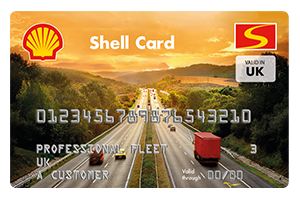
Nearly one in five businesses have been defrauded by an employee at some point, according to Action Fraud, the UK’s national reporting centre for fraud and cyber-crime.
Mileage fraud is one of the most common types of employee theft and costs companies millions of pounds each year.
The last research carried out into the issue revealed nine out of 10 company car drivers were faking their driving miles.
Car leasing firm, Flexed.co.uk, spoke to 1,200 company car drivers and the findings were eye-opening: 89% said they had submitted an inaccurate mileage claim in the past while 63% had added personal miles to their total for personal gain.
 Even relatively low grade forms of mileage fraud can cost companies dearly. Rounding up distances travelled is a good example: an individual may only benefit to the tune of £5-£10 a week, but over a year that’s £500. In a company employing hundreds of people, if 100 are doing the same, that’s £50,000 lost.
Even relatively low grade forms of mileage fraud can cost companies dearly. Rounding up distances travelled is a good example: an individual may only benefit to the tune of £5-£10 a week, but over a year that’s £500. In a company employing hundreds of people, if 100 are doing the same, that’s £50,000 lost.
Common mileage fraud to look out for
Be aware of any of the following types of mileage fraud that employees use to tweak expense forms for personal gain:
- making unnecessary journeys to boost income
- exaggerating the length of a journey
- fabricating journeys completely
- logging private driving as business miles
- filling up another car using a company fuel card
- sharing a journey with another driver and both drivers claiming mileage
- submitting inflated mileage totals for trips taken in personal vehicles
Additional penalties
A further sting in the tail to companies battling mileage fraud can be a hefty fine from HM Revenue and Customs (HRMC) on the tax owed on these fraudulent expenses. If HMRC investigate expenses and discover mileage fraud, your company could be fined up to £3,000 per employee in the UK.
Firms that use company-owned vehicles for business travel are required to report the usage of these vehicles to the tax authority, keeping accurate mileage records to demonstrate business versus private mileage usage.
A recent YouGov survey[3] conducted on business mileage claims found that 56% of company car drivers are unaware of HMRC rules on reclaiming business mileage. More than a third (36%) of employees update their mileage log less than once a fortnight, leaving companies potentially exposed to inaccuracies.
It is crucial that business owners and employees understand the law and ensure accurate records are kept. If there is such a low awareness in your company, a briefing session or training would be advisable.
Put the brakes on mileage fraud
All companies need to have a clear expenses policy. It’s worth reviewing your policy to see whether it includes these important guidelines:
- The maximum amount that can be claimed for allowable expenses
- Allowable and disallowable expenses
- The supporting documentation required (typically receipts) and clarification of when it’s not required, such as for personal mileage
- Mileage and fuel rates
- Personal expenditure guidelines
- A full description of the process, outlining the steps that take place from the creation and submission of the claim, its approval and checking, through to any reimbursement of the employee
- The disciplinary procedure for falsified expense claims
- A regular and random review of submitted expense claims by HR or Finance to ensure that the expenses policy is being adhered to
- A periodic review of the expenses policy and updating it where necessary
- Consider running training courses so that drivers are aware of the scale of the problem, company policy and the financial implications for the business
Technology to the rescue
One of the reasons why mileage fraud is such an issue is because many companies continue to require their employees to submit their mileage reports on paper mileage logs or spreadsheets.
Telematics is a more accurate way to capture mileage and allows companies to track private as well as business mileage.
Many systems have a button which drivers can press for private journeys so the number of miles are recorded but not the route.
More than two thirds (68%) of businesses in the UK are saving money on their vehicle fuel bills due to adoption of telematics, according to research by RAC Business.
Key signs to look out for
As great as telematics is in the fight against mileage fraud, a well-trained eye can also spot fraudulent behaviour.
Be aware of low personal mileage – HMRC would expect to see a 60/40 split of business to private and anything less than should be questioned.
Watch fill-up patterns and look out for consistent Friday fill-ups especially if the driver works Monday to Friday. Sharp spikes in figures should also be a red flag – most employees’ expenses should be fairly consistent over the period they are claiming for.
It is also worth reminding employees of the seriousness of ‘fiddling’ expenses. In isolation, an individual may not see the harm in adding a few extra miles to a journey, so consider giving your team the bigger picture and helping them to understand the very real business implication
























